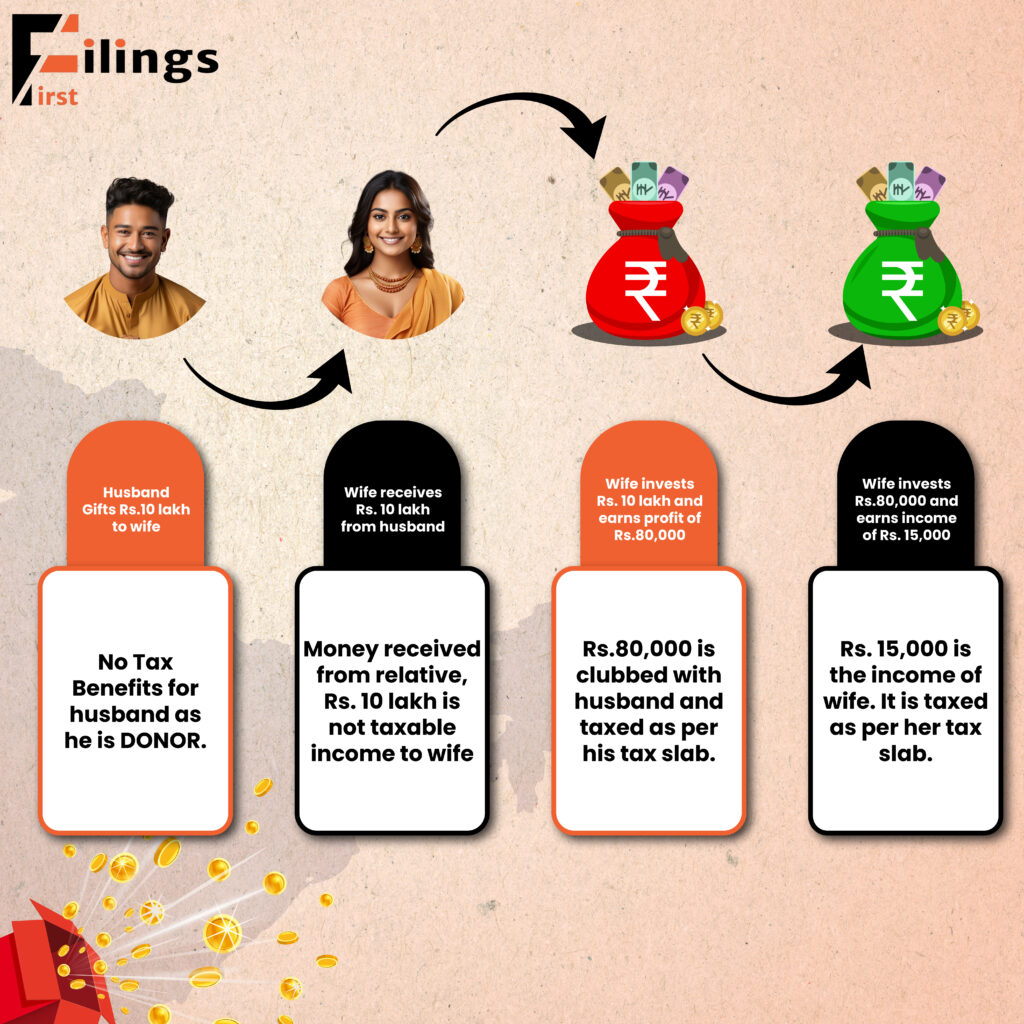
Tax on Gifts received
Gift-giving is an integral part of Indian culture, often reflecting deep-rooted traditions and social customs. While most gifts are of nominal value, some, such as property, jewelry, or works of art, can be substantial. To provide clarity on the taxation of such gifts, the Gift Tax Act was introduced in 1958 but later repealed in 1998. New rules for gift taxation were reintroduced in 2004 under the Income Tax Act and further amended in 2010. Given the changes, it is important to understand the current tax implications of receiving gifts in India.
What is a Gift According to the Income Tax Act?
The Income Tax Act defines a gift as money or movable/immovable property received from another individual or organization without any payment. The person or organization giving the gift is termed the donor, while the recipient is known as the donee.
Taxable gifts include:
- Money received via cash, draft, cheque, or bank transfer
- Immovable property such as land, buildings, residential/commercial property
- Movable property such as jewelry, shares, bonds, paintings, and sculptures
When are Gifts Exempt from Tax?
Not all gifts received in India are subject to tax. The Income Tax Act, 1962 provides several exemptions:
- Gifts or cash up to ₹50,000 in a financial year are tax-exempt.
- Gifts from close relatives (parents, spouse, siblings, in-laws) are exempt, regardless of their value.
- Gifts received on the occasion of marriage are tax-exempt.
- Inheritances or gifts received through a will are tax-exempt.
- Gifts from local authorities or recognized religious or charitable organizations are tax-exempt.
Calculating the Taxable Value of a Gift
The taxable value of a gift is determined by the Income Tax Act’s provisions. The following table outlines how to calculate the taxable value of various gifts:
Type of Gift | Applicability of Gift Tax | Taxable Value of the Gift |
Cash, Cheque, or Bank Transfer | If the value exceeds ₹50,000 | The entire amount received |
Immovable Property (without consideration) | If the Stamp Duty Value exceeds ₹50,000 | Stamp Duty Value of the property |
Immovable Property (for inadequate consideration) | If Stamp Duty Value exceeds the purchase price by more than ₹50,000 | Difference between Stamp Duty Value and purchase price |
Movable Assets (without consideration) | If the Fair Market Value exceeds ₹50,000 | Fair Market Value of the asset |
Movable Assets (for consideration) | If the Fair Market Value exceeds the purchase price by more than ₹50,000 | Difference between Fair Market Value and purchase price |

Example Calculations
- Immovable Property (without consideration): If the Stamp Duty Value of a gifted property is ₹2 lakh and no payment is made, the taxable amount is ₹2 lakh.
- Immovable Property (for inadequate consideration): If the Stamp Duty Value is ₹2 lakh and the purchase price is ₹1 lakh, the taxable amount is ₹1 lakh.
- Movable Assets (without consideration): If jewelry’s Fair Market Value is ₹3 lakh, the taxable amount is ₹3 lakh.
- Movable Assets (for consideration): If jewelry’s Fair Market Value is ₹3 lakh and the original purchase price is ₹2 lakh, the taxable amount is ₹1 lakh.
Declaring Tax on Gifts
Under the repealed Gift Tax Act of 1958, the donor was responsible for paying gift tax. However, current Income Tax rules place this responsibility on the donee. The taxable value of the gift must be declared under “Income from Other Sources” when filing Income Tax Returns. The gift tax liability is then calculated according to the donee’s income tax slab rate. Individuals in the highest tax bracket may pay up to 30% tax (plus applicable Health and Education Cess) on gifts received.
Understanding gift taxation in India is crucial for accurate income tax declarations and minimizing tax burdens. By being aware of the exemptions and how to calculate taxable values, individuals can avoid penalties and benefit from their gifts with minimal impact on their overall tax liability. If in doubt, consulting a tax professional is advisable to ensure compliance with current tax laws.

